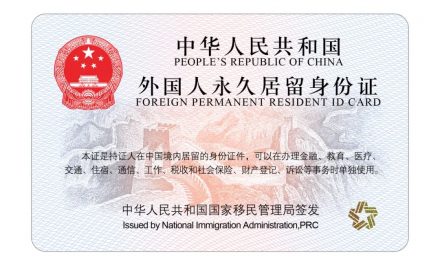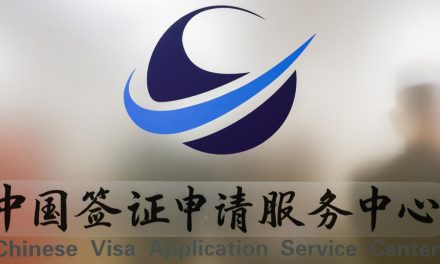With a crackdown on foreigners working illegally in China, we spoke with the UK government in China in the hope of making British people (and everyone else) aware of the possible consequences of working in China on the wrong visa – be it a fine, administrative detention, deportation, travel ban and/or criminal charges – and what recourse is available to people who are detained.
Here are some fast facts that should be enough to prompt you to get your papers in order:
- Over 40 British nationals detained this year to April 2019, triple that compared to same period in 2016/2017.
- Not all focused on municipalities like Shanghai and Beijing but in cities across China.
- There are increasing incidences year-on-year of people being detained and/or deported as a result of breaching visa conditions including overstaying.
- Under Chinese law the onus is on the visa holder to be aware of the conditions of their stay in China and not solely that of the employer or education provider.
While the information in this article was provided to That’s by the UK government, it is safe to assume the situation is similar for people of every nationality. So non-Brits, please consult your own embassy or consulate for the equivalent information that is offered to Brits here. The following information is based on the UK government’s understanding of immigration law in China and from cases they have seen.
Employment
- Only category of visa that permits foreign nationals to work is a ‘Z’ visa (with associated work permit).
- Process: obtain ‘Z’ visa before entering China, employer seeks work permit with PSB, teachers require an additional ‘foreign expert certificate.’ Employment should only commence after work permit obtained. For teachers the expert certificate can be applied for before they enter China.
- Work permits cover a particular district/area and sometimes a physical location such as a specific school, holders must seek permission before working in a third location, e.g. employed in Shanghai and wish to work in Hangzhou, holder must apply for permission in Hangzhou even if with same employer.
- Foreign nationals will be considered as working illegally if, without permission of the Chinese authorities, they work outside of the category given on their work permit. While employers are urged by PSB to ensure foreign employees understand work permit conditions, the onus remains on the work permit holder to be aware of the conditions of their visa/work permit.
Business Visa
- Meant for short term stays, e.g. lecturers and attending business meetings.
- Full conditions of visa and what activities are permitted are available online for most Chinese provinces or the Chinese Visa Applications Centers outside of China.
Student Visa
- Holders not permitted to work without explicit permission of immigration authorities.
Immigration-Related Detention
- In most cases overstaying a visa and working illegally leads to fines and administration detention of up to 15 days. The length of detention is usually determined by: individual circumstances, the history of the employer, length of breach as well as other factors. Various Chinese authorities may have an input into the decision, such as the Immigration Bureau and Public Security Bureau.
- In a majority of recent cases seen by the British Government, immigration offences also lead to deportation but these appear to be when someone has broken the law intentionally.
- Some cases where the overstay is a lengthy period, foreign nationals could face detentions of up to 30 days whilst the Public Security Bureau investigate further to consider if criminal charges should be brought. If criminal charges are brought, it is not uncommon for cases to take between six and 12 months to come before a court. This time is likely to be served in a detention centre.
What the British Consulate or Embassy Can Do If You are Detained
- Should you be caught and detained, here is what the UK government can do for you.
- The police will ask foreign nationals if they would like their consulate or embassy informed of their detention, and if they would like them to contact them.
- In the case of British people, consular staff will contact detainees as soon as possible after being officially notified of the detention, and visit them if they’d like them to. If a British person is detained for a longer period, consular staff will visit them on a regular basis (in most cases once a month).
- They will tell the detainee’s family and friends they’ve been arrested/detained, if they want them to. They can also help a detainee understand the benefits of contacting their family if they are initially unsure. They can then pass on messages to and from family/friends.
- Consular staff can give detainees information about the Chinese legal system, explain the prison system, mail and censorship, privileges and how to access medical services. They cannot give legal advice but can provide detainees with a list of English-speaking lawyers in China.
- Put them in touch with a prisoner’s welfare charity called Prisoners Abroad.
- Please note, the UK government are limited in what support and advice they are able to give British nationals who also hold Chinese citizenship. Click here for more.
- Additionally, anyone entering China with dual nationality (neither of which is Chinese), and requires consular support (such as in the event of detention and arrest) may be restricted to seeking consular support from the country related to the passport they entered China on.
Some Useful Links
Help for British persons detained in China
Includes an outline of what the UK government can and can’t do if you are detained, with further specific guidance for China. Click here for more.
Foreign Office Travel Advice
The latest information on visiting and living in over 225 countries (including China!). Includes advice on entry requirements, local laws and customs and much more. Create a subscription to get email alerts when advice changes. During a crisis, such as a natural disaster, these pages are updated first. Click here for more.
UK government guide to living in China
Includes a range of advice, from accessing healthcare and finding English-speaking lawyers to how to vote while abroad. Click here for more.





![[How To]: Get a Work Visa in China](https://www.life-china.com/wp-content/uploads/2020/01/1560328037-440x264.jpg)
Recent Comments